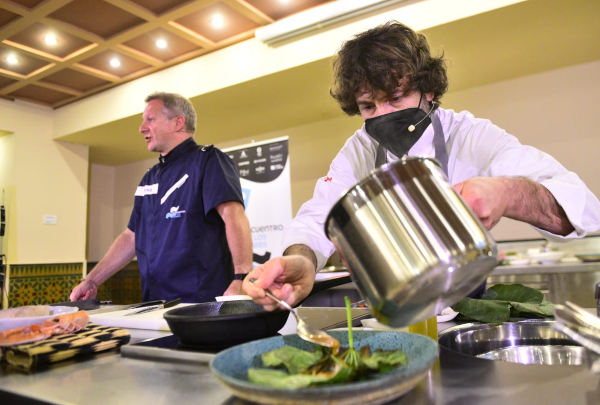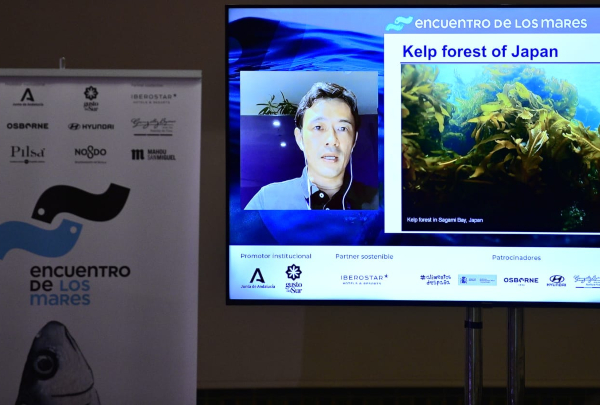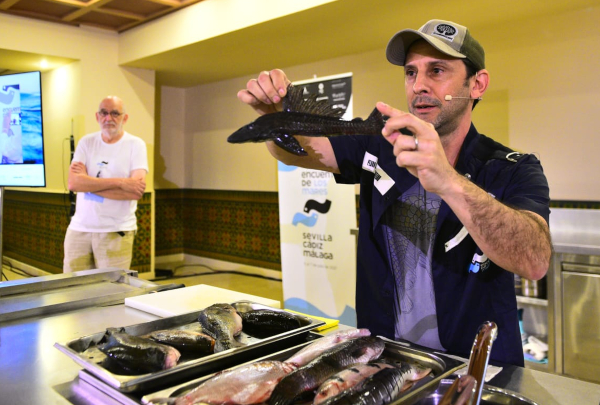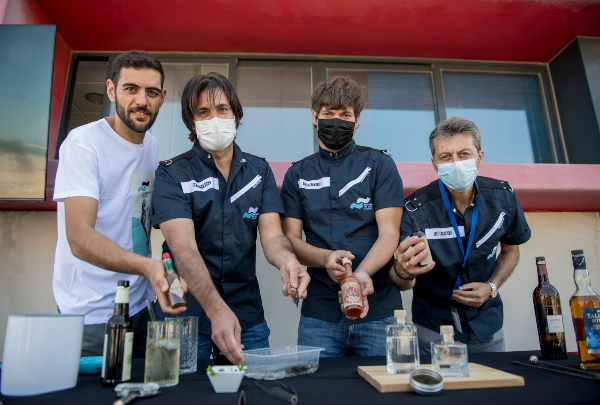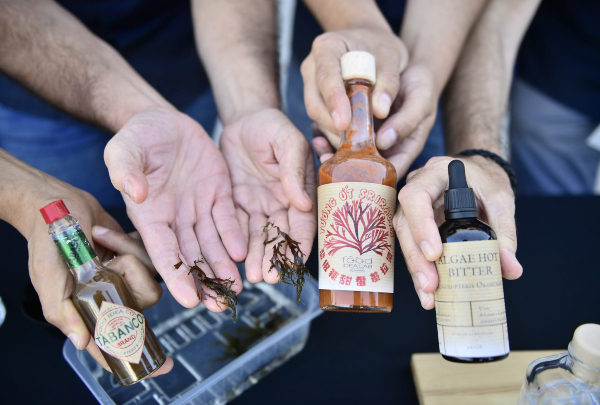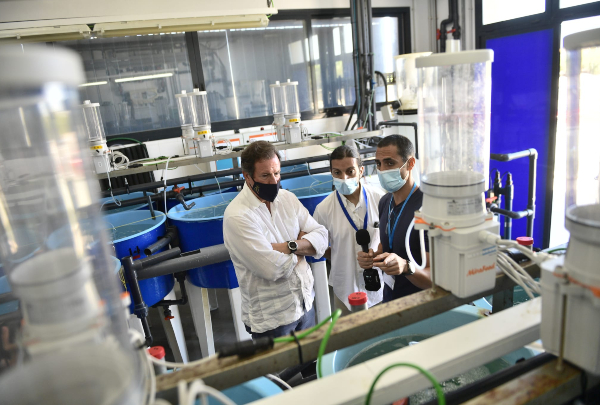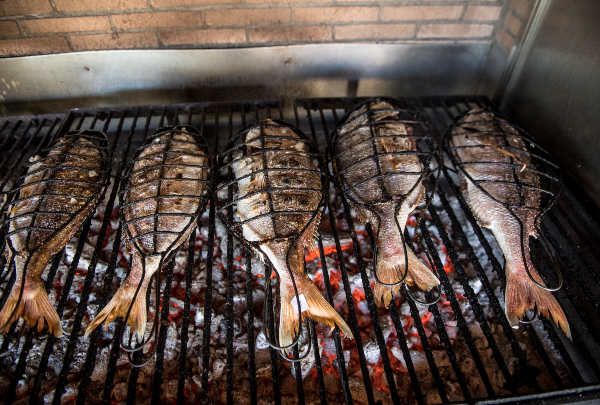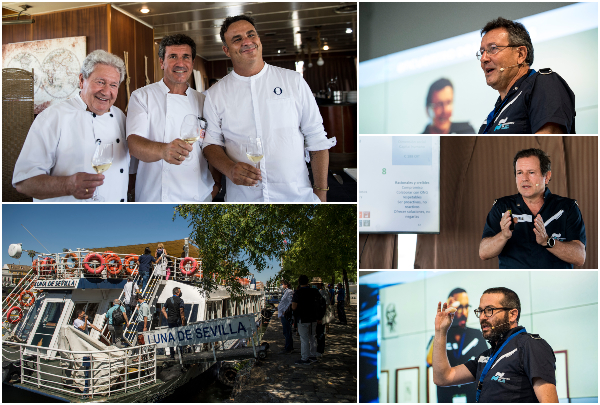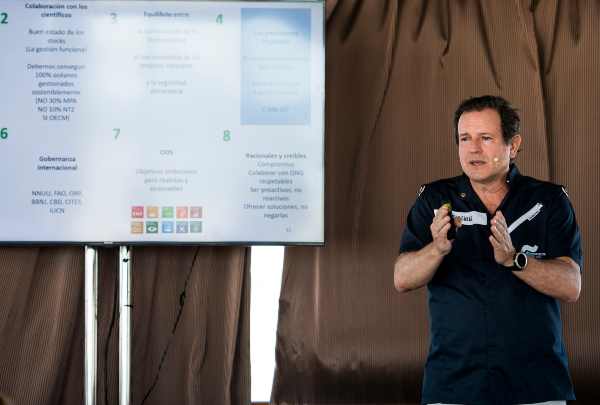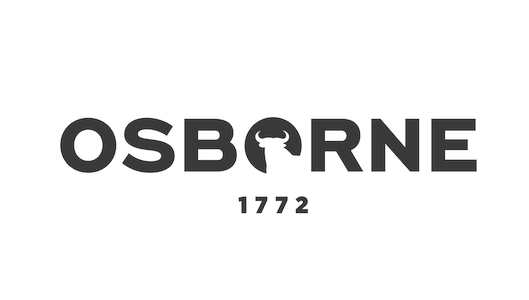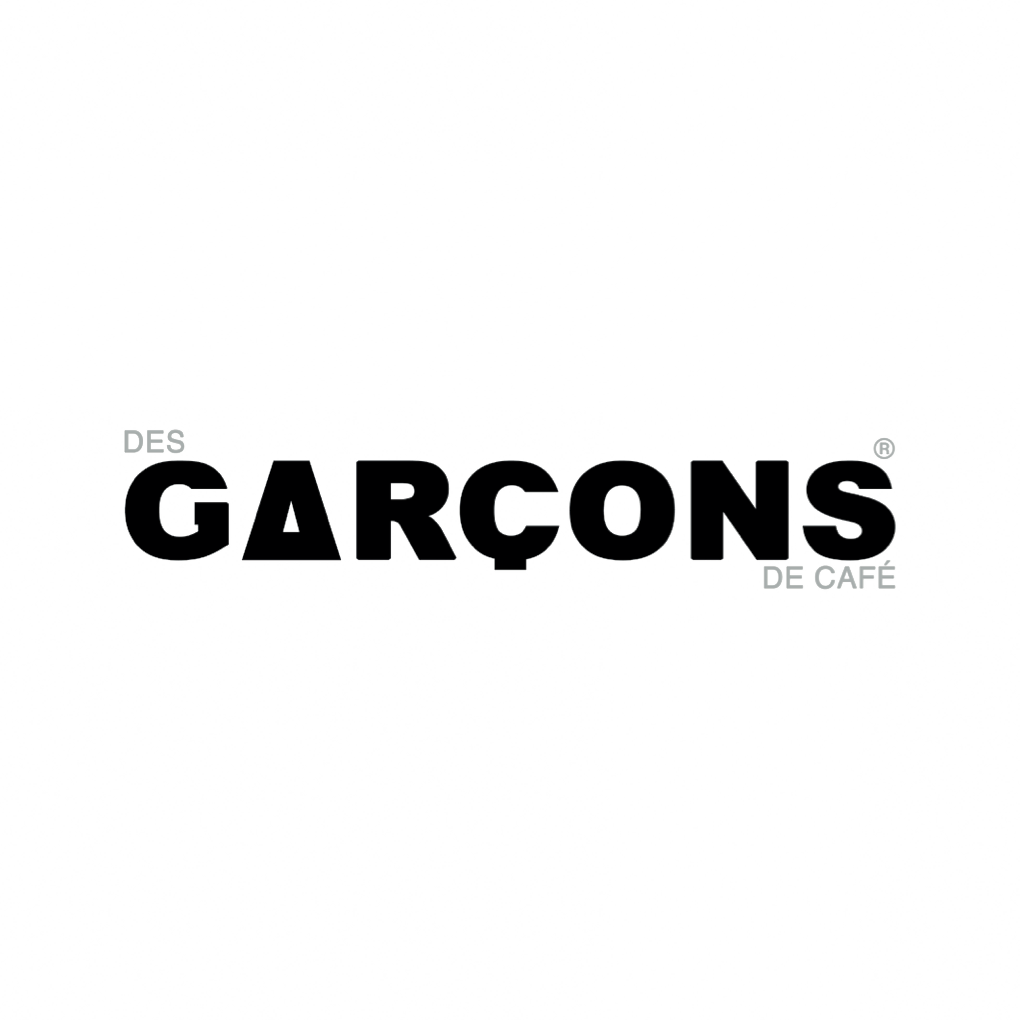News
Gómez Pinchetti: “The future lies in improving algae production technology to make it more affordable and sustainable”
.jpg)
Gómez Pinchetti, pointed out Spain’s leadership of algae production, but also warned of the work still to be done to improve technology and make it more affordable and sustainable.
So that its results can be used, for example, to create metabolytes for industrial applications.
The Director of the Spanish Algae Bank at the University of Las Palmas de Gran Canaria (ULPGC), Juan Luis Gómez Pichetti, used his first talk for Meeting of the Seas aboard the Luna de Sevilla cruise ship to talk about water and seaweed. Pichetti touched on the current data for the sector, showing that seaweed is set to become a habitual part of our diet.
According to FAO data, algae production has risen to over 3M tonnes dry weight in recent years, creating business worth more than 13,000 million dollars, particularly in Japan and China, although farms have spread to countries in Africa or South America. 90% of production comes from cultivation systems and oceanic farms, where brown algae is the species most commonly produced. He explained that some of these farms breed fish or molluscs, “with a combination of resources”, and occasionally they are transformed into carbon sinks. “It’s not a dream any more. Algae cultivation operates like a lung of the planet”, he said. “Funding is now being sought to create carbon sinks out in the ocean, and we’ll see this with our own eyes”.
In Europe, he said, the utilisation of algae is a strategic decision, and the EU is implementing “specific legislation with normalisation standards”. The intention, he went on, is to “standardise control systems”. There are now 151 algae production companies in Europe, 74 producing microalgae, and 222 producing spirulina, and the number of companies has risen by 150% in the last ten years. And, over the entire continent, he pointed out: “Spain is a major contributor to the blue economy”.
The Canary Islander finished his talk with some thoughts on the increased consumption of algae and microalgae, saying that the latter were present “in kitchens and also in our day-to-day products such as doughnuts or beer. Cheeses are even cured with algae …” he added in a surprising remark. Questioning the source of protein which many attribute to algae (“they produce a lot of carbohydrates”), Pichetti took note of the increase in consumption, but issued a warning concerning the immediate future: “Algae are very much associated with the development of technology. Technology is needed to create and make progress with cultivation, but the technology uses fossil fuels. So we still have a lot of work to do to improve production technology, to make it both more affordable and sustainable”. And its results, instead of being used for doughnuts, “should serve to create metabolytes, substances which could be used in industrial applications, for example”.
.jpg)
